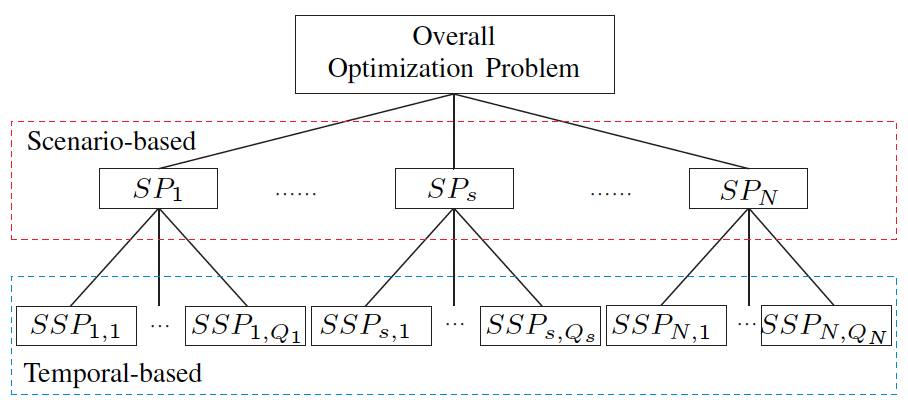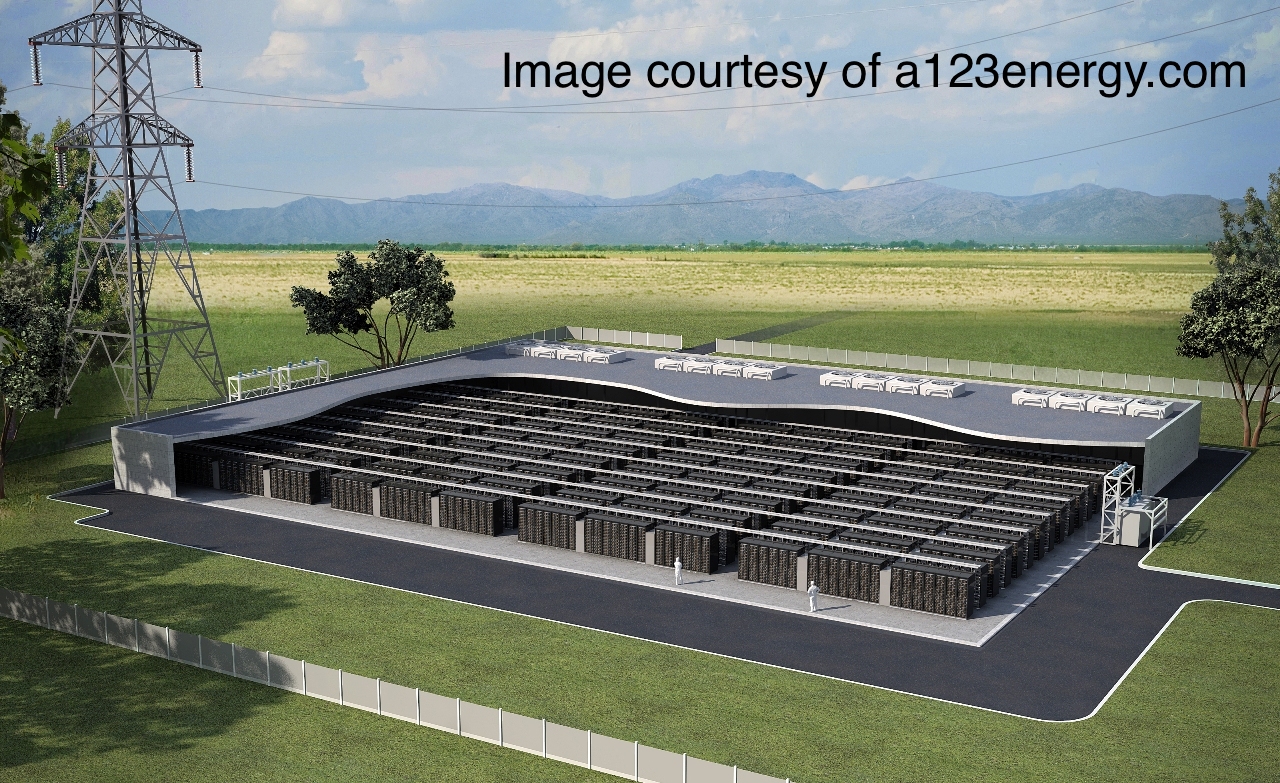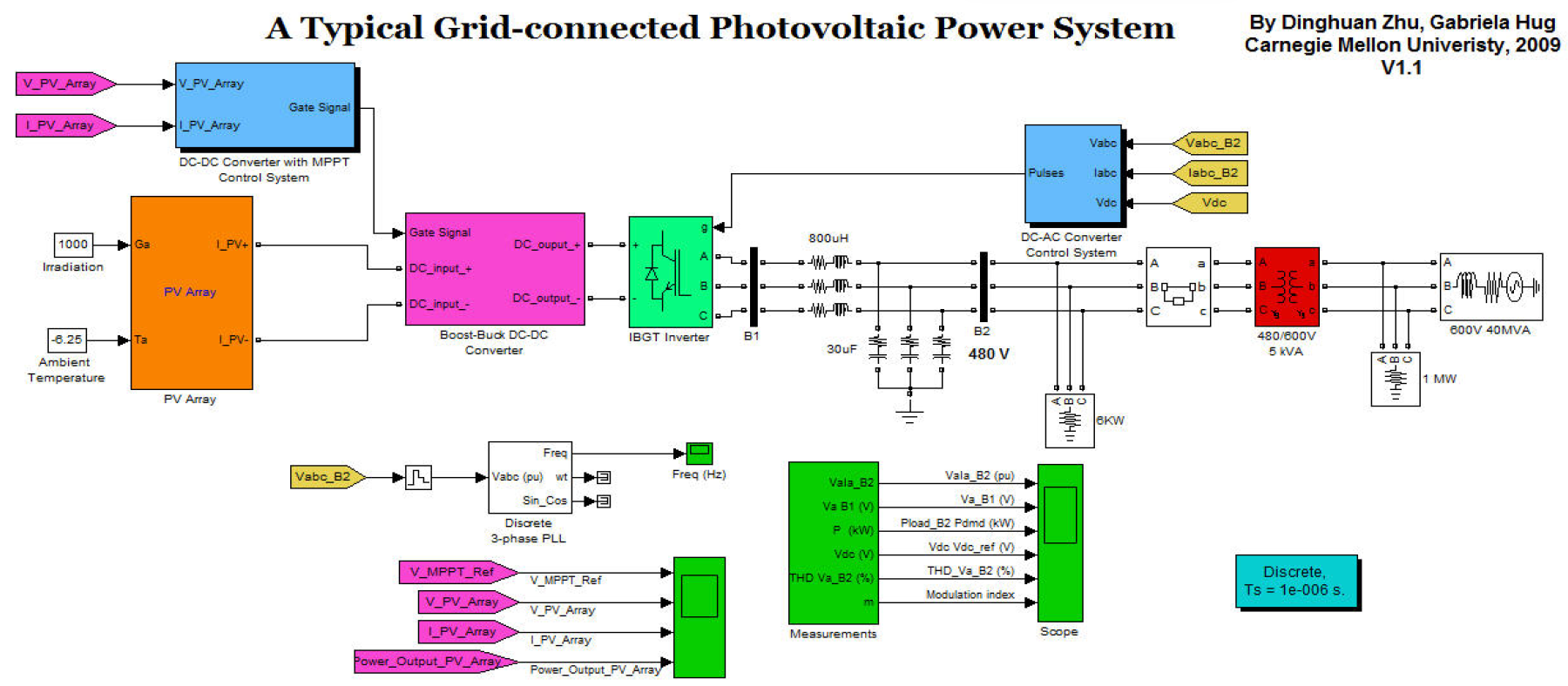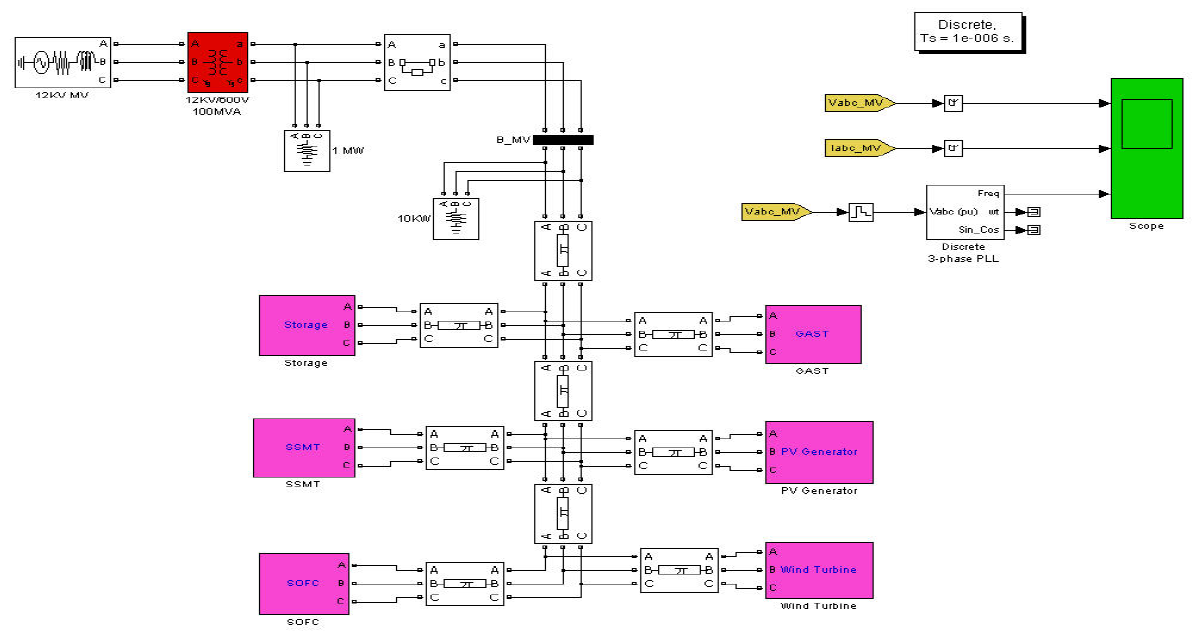Dinghuan Zhu: Research
Decomposition in Stochastic Model Predictive Control
 |
Abstract: With the increased uncertainties introduced by variable resources such wind and solar energy, the power industry is undergoing a transition from the current deterministic decision making to the stochastic decision making paradigm. In terms of grid operation, the static economic dispatch needs to be replaced by stochastic economic dispatch which explicitly takes into account the uncertainties in the system. This project proposes a real-time optimal dispatch approach based on stochastic model predictive control. Due to the resulting large-scale and computationally demanding optimization problem, optimization decomposition techniques need to be employed to facilitate the parallel computation. Both a scenario-based decomposition and a temporal-based decomposition are investigated in terms of speed and convergence using a modified IEEE 39-bus test system. |
Robust Frequency Control Design using Energy Storage
 |
Abstract: An H-infinity based decentralized robust control approach is proposed to integrate energy storage into power system frequency control and to address increased frequency deviations introduced by variable generation. The key design principle is the so-called frequency separation objective, i.e. low frequency variations of the power fluctuations are balanced by the conventional generators while the high frequency variations are compensated by the storage device due to their fast response capability. Simulations on the WECC 9-bus test system illustrate the performance of the proposed control. |
Applications of Energy Storage in Power Systems
 |
Abstract: This project concentrates on the real-time control of energy storage devices for various storage applications at both the transmission and distribution levels. These applications include but are not limited to frequency regulation, generation/transmission deferral, integration of renewable resources, tie-line flow control, and ramping rate control. The basic control principle of operating energy storage systems in this project is the model predictive control concept, which is a look-ahead optimal control technique. |
Microgrid Energy Management
 |
Abstract: This project proposes a multi-step coordinated control approach for microgrid energy management considering economic and environmental aspects. The proposed concept consists of a two-layer control algorithm, i.e. the component-layer and the top-layer controls. The component-layer control is utilized to maintain the power output from renewable energy constant for short periods while the top-layer control properly alleviates the severe fluctuations of the power output from conventional generators caused by balancing the output from intermittent resources. A typical campus-wide microgrid is carefully examined as an example to demonstrate the performance of the proposed control. |
Modeling of a Grid-connected PV Generation System
 |
Abstract: This project implemented the detailed switch modeling of a typical grid-connected photovoltaic power generation system, including components such as solar energy source, maximum power point tracking control, Buck-Boost DC-DC converter, and voltage source converter based DC-AC inverter. The HIT® photovoltaic module power 200 from SANYO Energy (U.S.A.) Corp. was used to tune the internal parameters of the system and to verify the correctness of the Simulink model. |
Study on Numerical Simulation Platform of Microgrid
 |
Abstract: A Matlab Simulink platform of a typical microgrid including photovoltaic arrays, micro turbines, fuel cells, wind turbines and lead-acid batteries (battery model provided by the Simulink library) was built to numerically test the overall performance of microgrids. This platform serves as a library including the typical components of microgrids, allowing microgrid developers to focus on the microgrid control strategy design. |